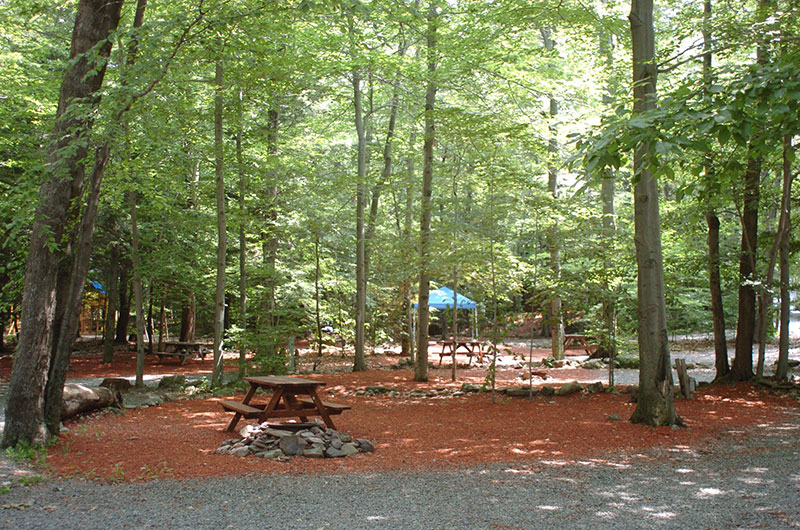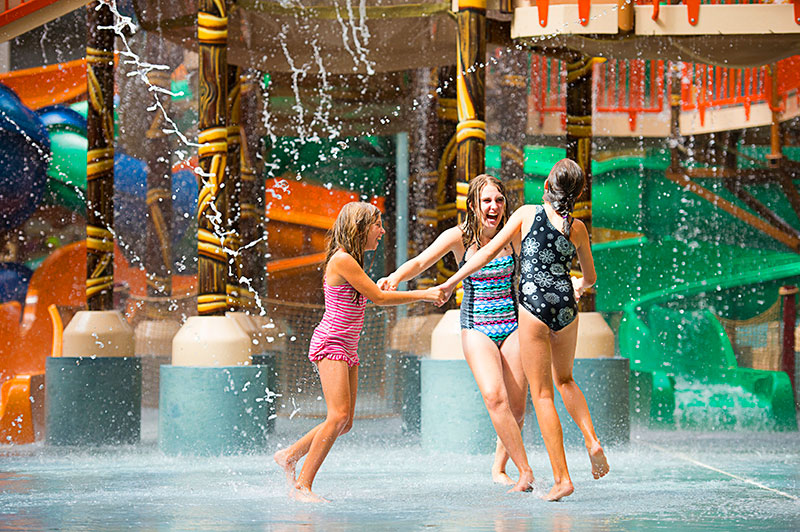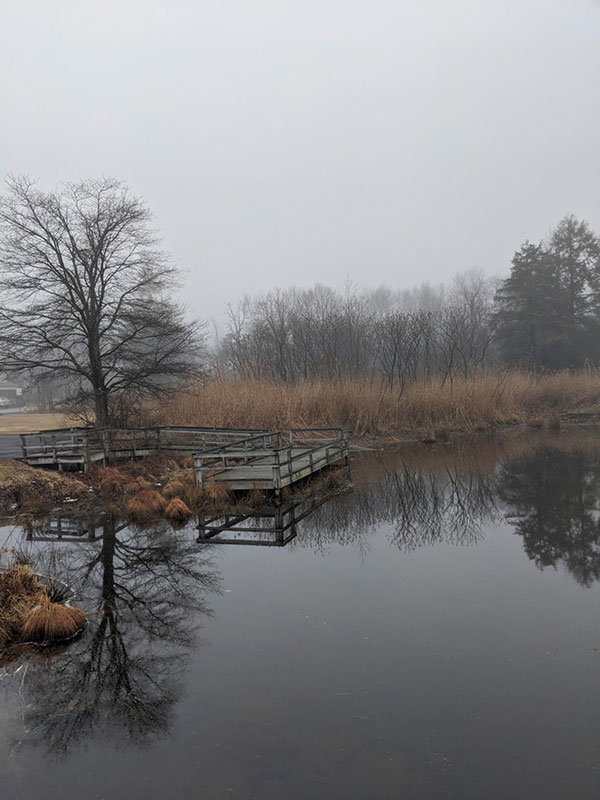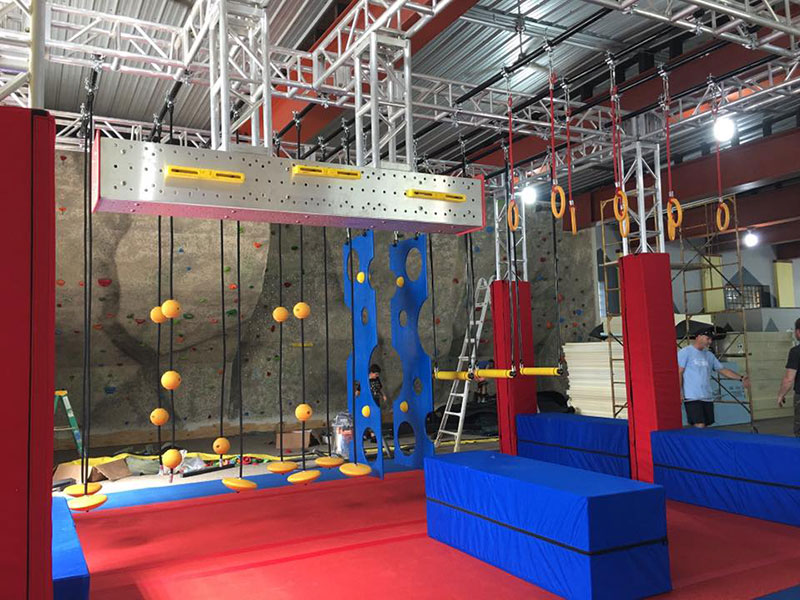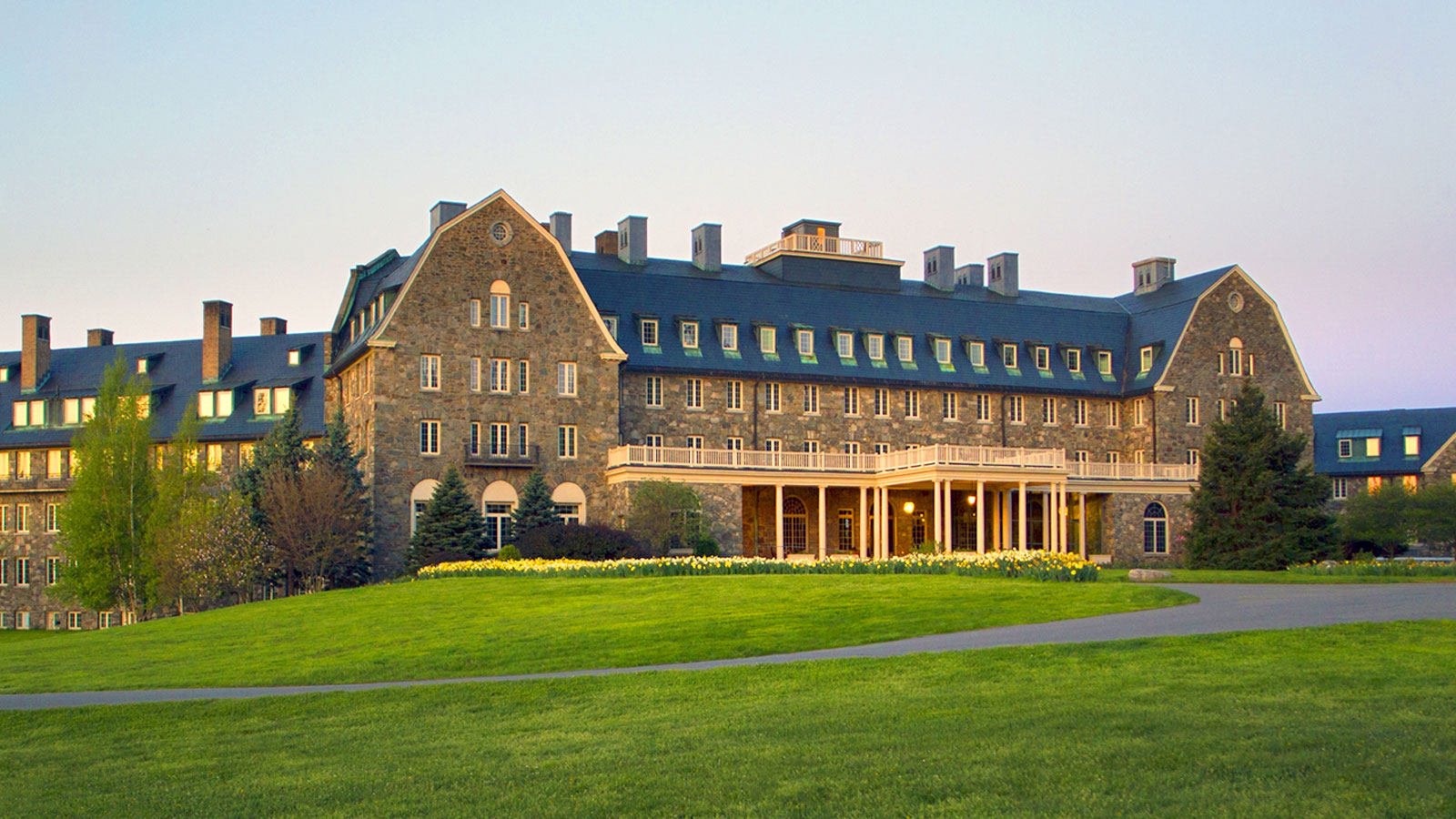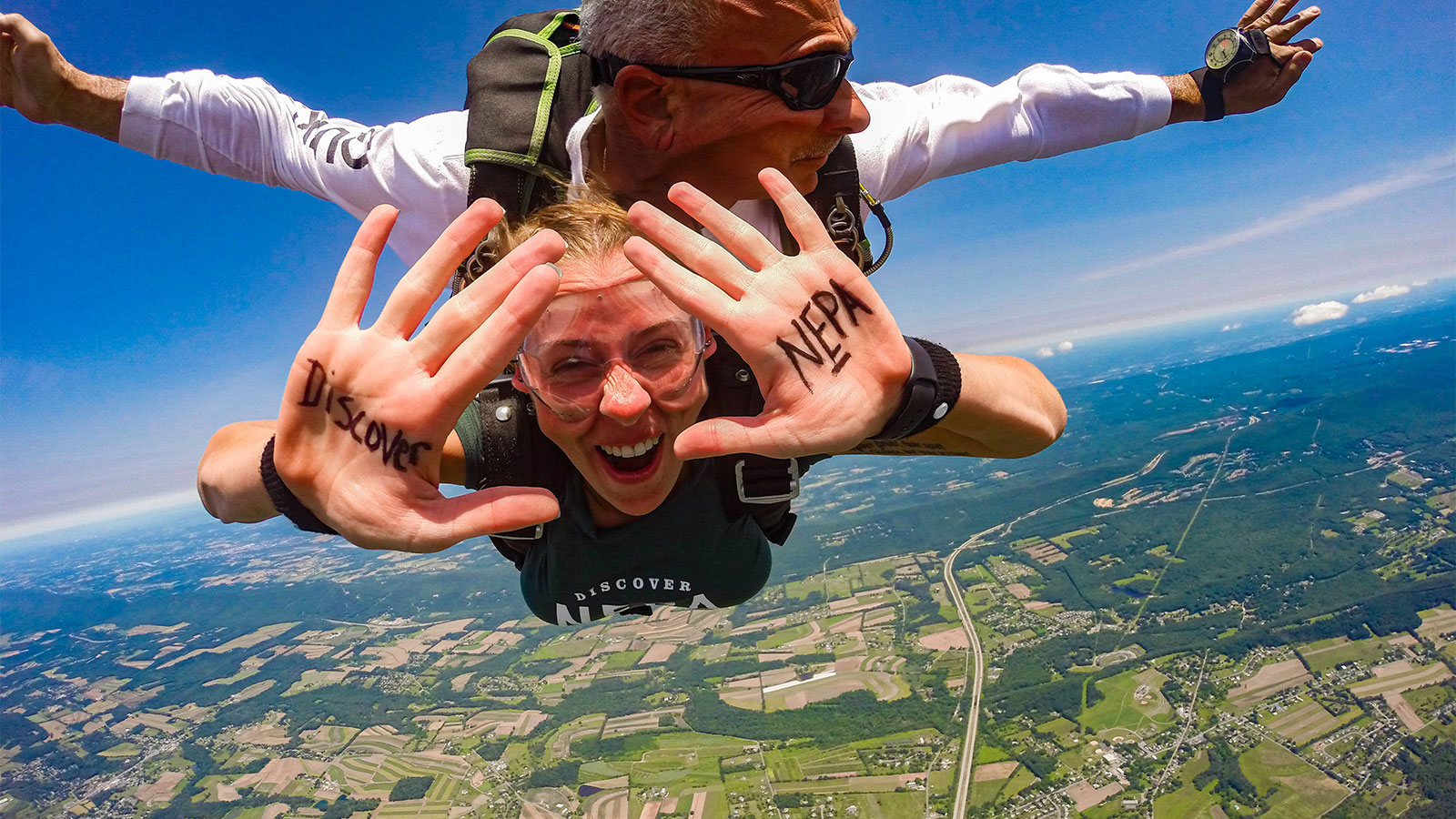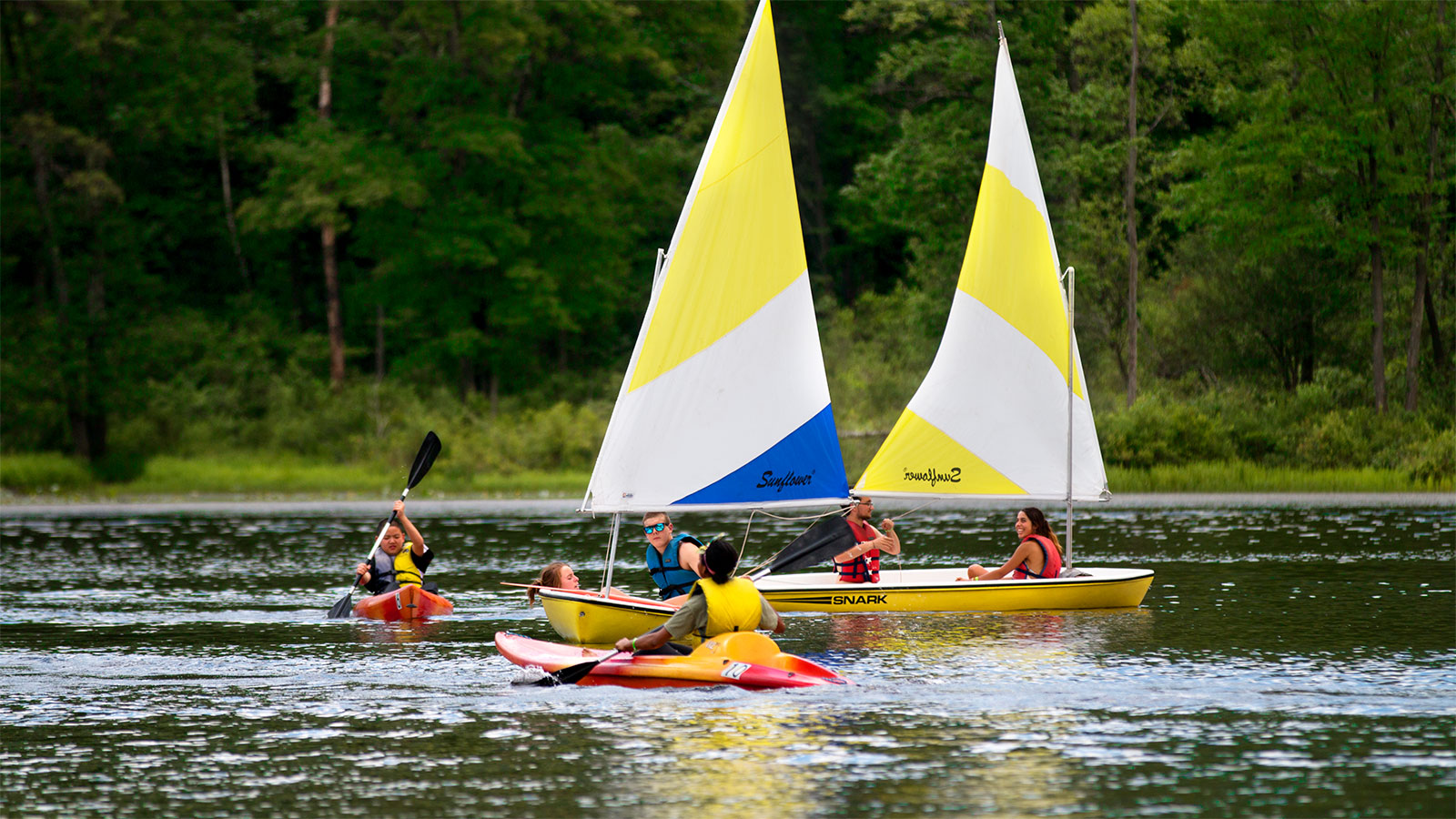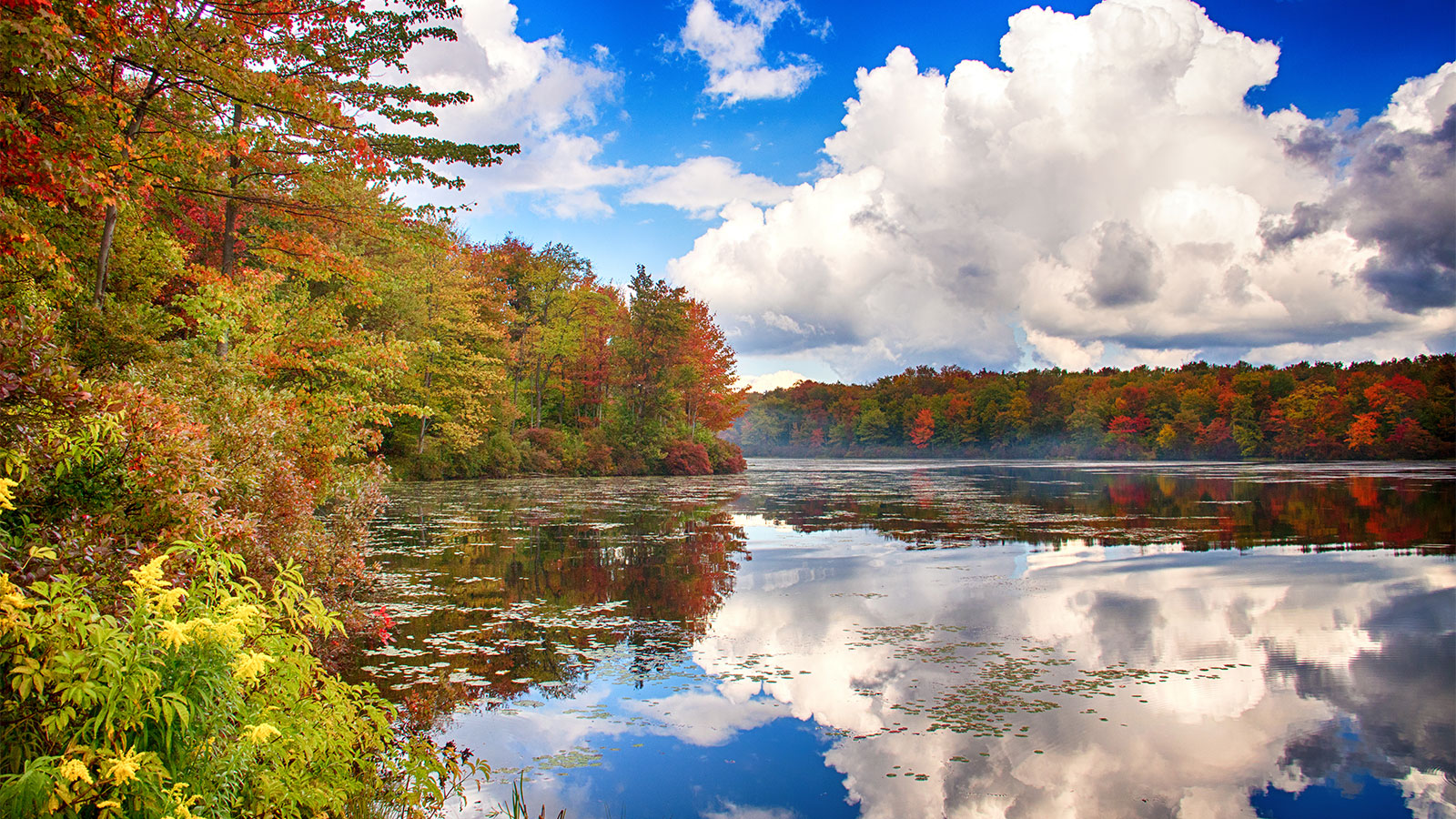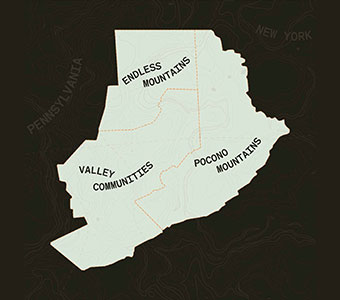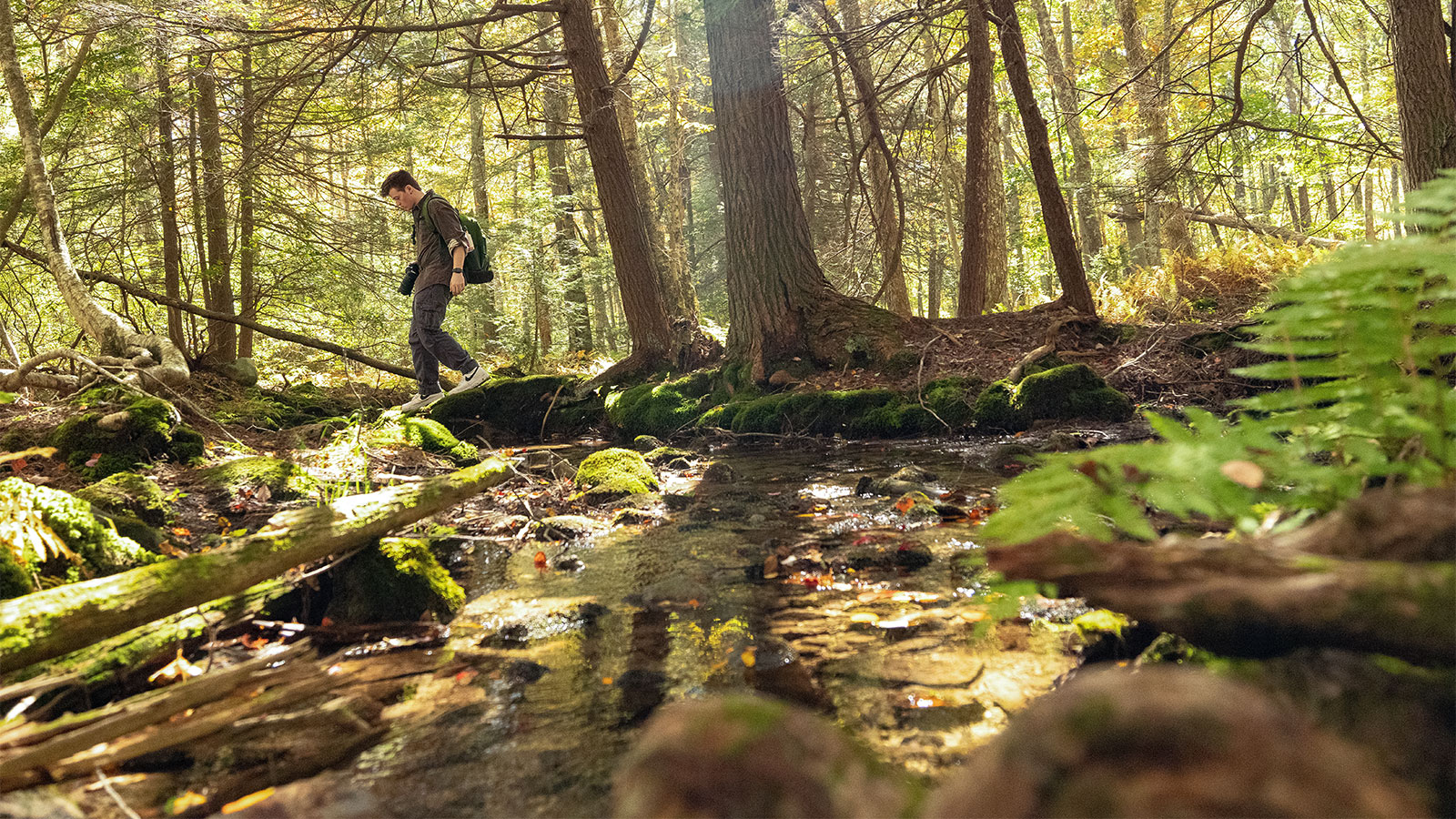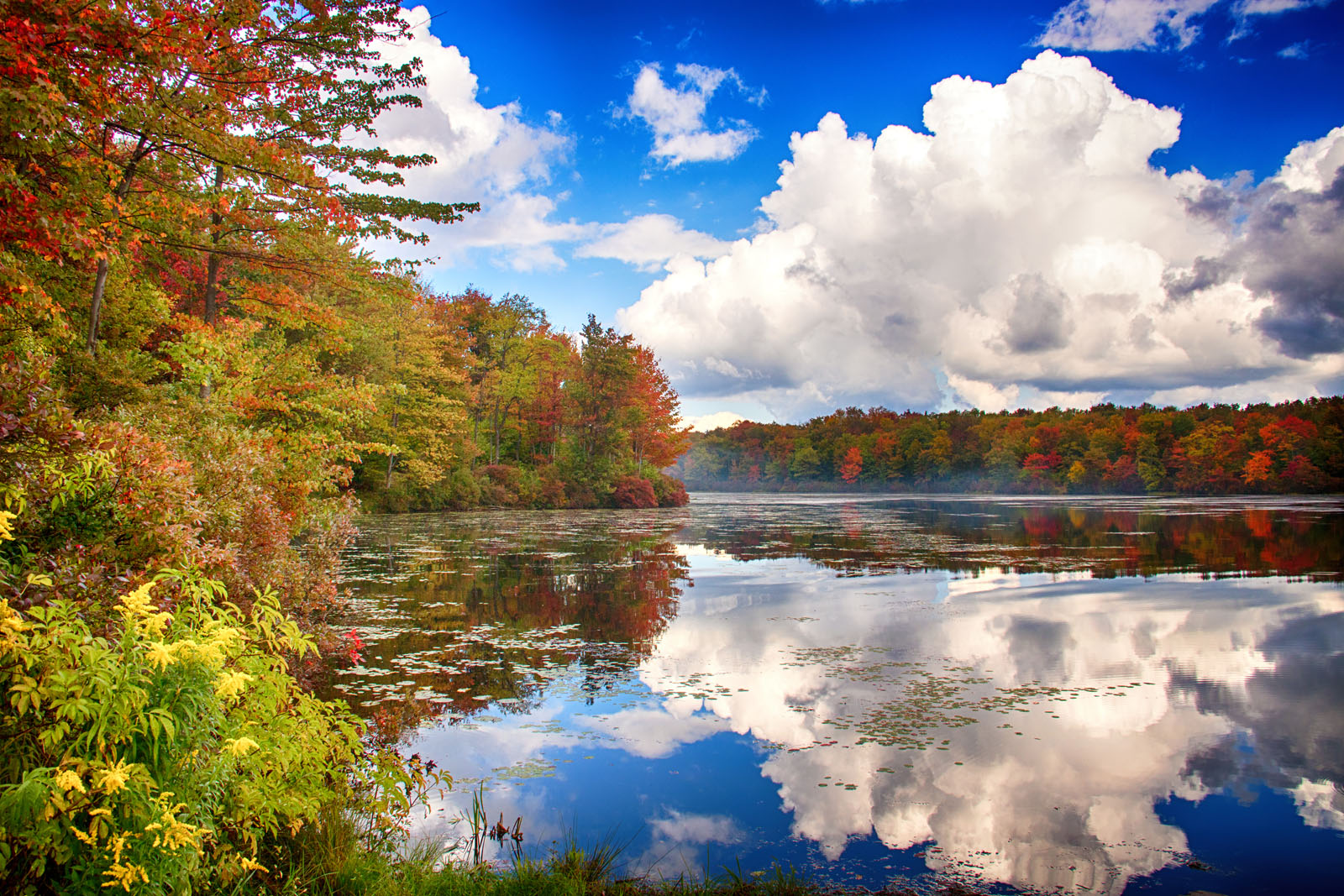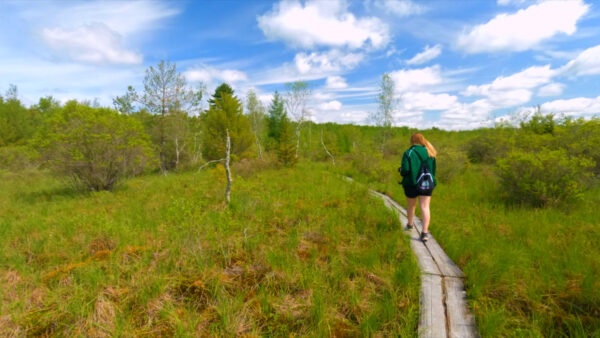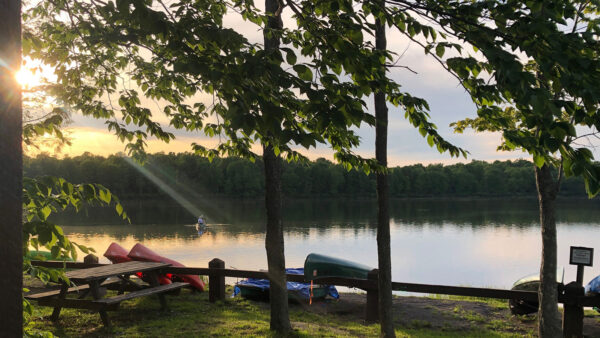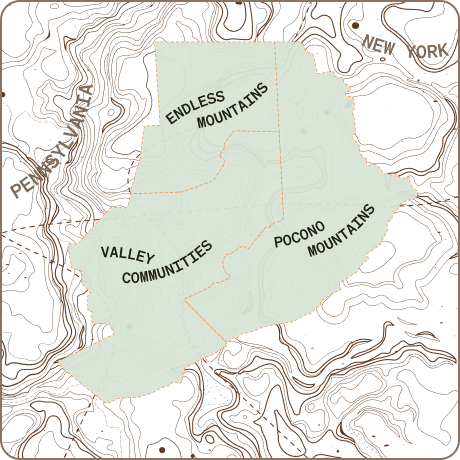Park Spanning Wayne and Monroe Counties Features Hiking, Biking, Fishing and So Much More
Enjoy peaceful, lakeside hikes and plenty of outdoor activity at Tobyhanna State Park in Tobyhanna, PA. This easily accessible park is located in the Mountain Region of NEPA’s famous Pocono Mountains. The secluded, 5,440-acre park is only a short drive from Wilkes-Barre and Scranton. And it’s easy to reach from just about anywhere in the expansive Poconos region.
Tobyhanna State Park offers 10 miles of trails ranging in difficulty from more difficult point-to-point trails to easy lakeside loop trails. Explore dense hardwood forests, fertile wetlands and even a boulder field. Some trails are also open to mountain biking and snowmobiling.
The 170-acre Tobyhanna Lake serves as the centerpiece of the park. The popular warm water fishery allows fishing from shore, boat or ice and features an ADA accessible fishing pier. Visitors also enjoy a sandy beach area in the summer months, a playground, boat rentals, public restroom facilities and plenty of parking.
Tobyhanna State Park is open all year from sunrise to sunset. Get outside. Grab a park map. And discover everything this NEPA favorite has to offer. Here’s a quick look at some of the highlights.
Hiking & Mountain Biking

Tobyhanna State Park’s thick, hardwood forests, low, rolling hillsides and swampy wetlands provide the more than enough scenery and wildlife to entice any avid hiker. With three trails totaling just over 10 miles, there’s a little adventure in store for every experience level.
The popular, 5.1-mile Lakeside Trail traverses the entire lake. It passes through the sandy beach area and campgrounds and offers plenty of opportunities for spotting wildlife. Along the relatively flat trail, you’ll find benches, picnic tables and long stretches of tranquil, dense forest. You can also connect to the park’s two other trails via the Lakeside trail. Mountain biking, cross-country skiing and snowmobiling are only permitted on the Lakeside Trail.
Swimming, Boating, Fishing & Hunting

From Memorial Day to mid-September, swimming is allowed at the sandy beach area on Tobyhanna Lake. The beach features restrooms with changing areas and showers. The lake is also open to boating for both electric motored boats and non-powered boats and offers 60 overnight mooring spaces. Visitors can also rent rowboats, kayaks, paddleboats, canoes and electric motor boats during the summer months.
The 170-acre Tobyhanna Lake, classified as a warmwater fishery, offers several species for year-round fishing. Target bass, pickerel, catfish, yellow perch, multiple species of panfish along with stocked brook and brown trout. The lake is a popular spot in the late winter months for ice fishing.
Almost every area of Tobyhanna State Park is open to hunting and trapping during established seasons. The park is home to many popular species of game, including white-tailed deer, black bear, squirrel and turkey. Fur bearing species include beaver, muskrat, fox, coyote, mink and raccoon. Dog training is permitted in designated hunting areas only after Labor Day through March 31.
All fishing, boating, hunting and trapping activities in the park are subject to PA DCNR and PA Fish and Boat Commission and PA Game Commission rules and regulations.
Picnicking, Camping & Wildlife Viewing

Tobyhanna State Park is situated in the Pocono Plateau. The park’s prevalence of bogs, dense forests and hills make it a perfect stop for migratory birds, large mammals and reptiles. Unique plant life abounds in the park as well. Keep an eye out for the carnivorous pitcher plant, mountain laurel, rhododendron and highbush blueberries.
Picnicking is a popular year-round activity in the park. There are four convenient picnic areas, each with picnic tables and charcoal grills. An ADA-accessible picnic pavilion with electricity can be reserved in advance for a nominal fee. The picnic areas are also close to the park’s small playfield and playground.
Spending the night or weekend at Tobyhanna State Park is easy with 135 camp sites. The camping area is open from early April through mid-October. All campsites are located near a central rest area with flush toilets, showers and water spigots. Pets are also permitted at select camp sites for a fee. The park also features a sanitary dump station for trailers and motor homes.
You can make camping and picnic reservations on-line.
Winter Activities
Tobyhanna State Park offers plenty of wintertime fun. Ice skating is a popular activity on Tobyhanna Lake during the late winter months. The park features a 1.2-acre skating area near Parking Area #3. Ice thickness is not monitored. Anyone planning activities on the frozen lake must first test the ice thickness.
The 5.1-mile Lakeside Trail allows for cross-country skiing and snowmobiling as conditions permit. The one-way snowmobile trail on the Lakeside Trail runs counterclockwise and begins at Lot #1. Snowmobiles are welcome in the park after the last deer season in December until April 1. All operators and passengers are subject to PA Snowmobile Law.
Plan a Trip

Tobyhanna State Park is easily-accessible from most major highways in Northeastern PA. Interstate 380, which connects to I-80, I-84 and I-81, runs near the park. You can also access Tobyhanna State park via most major roadways in the Pocono Mountains. The park is close to several amenity-filled towns like Mt. Pocono, Tobyhanna, Gouldsboro and Tannersville. There are also plenty of popular restaurants, boutique hotels, fun attractions and so much more within a short drive of the park.

